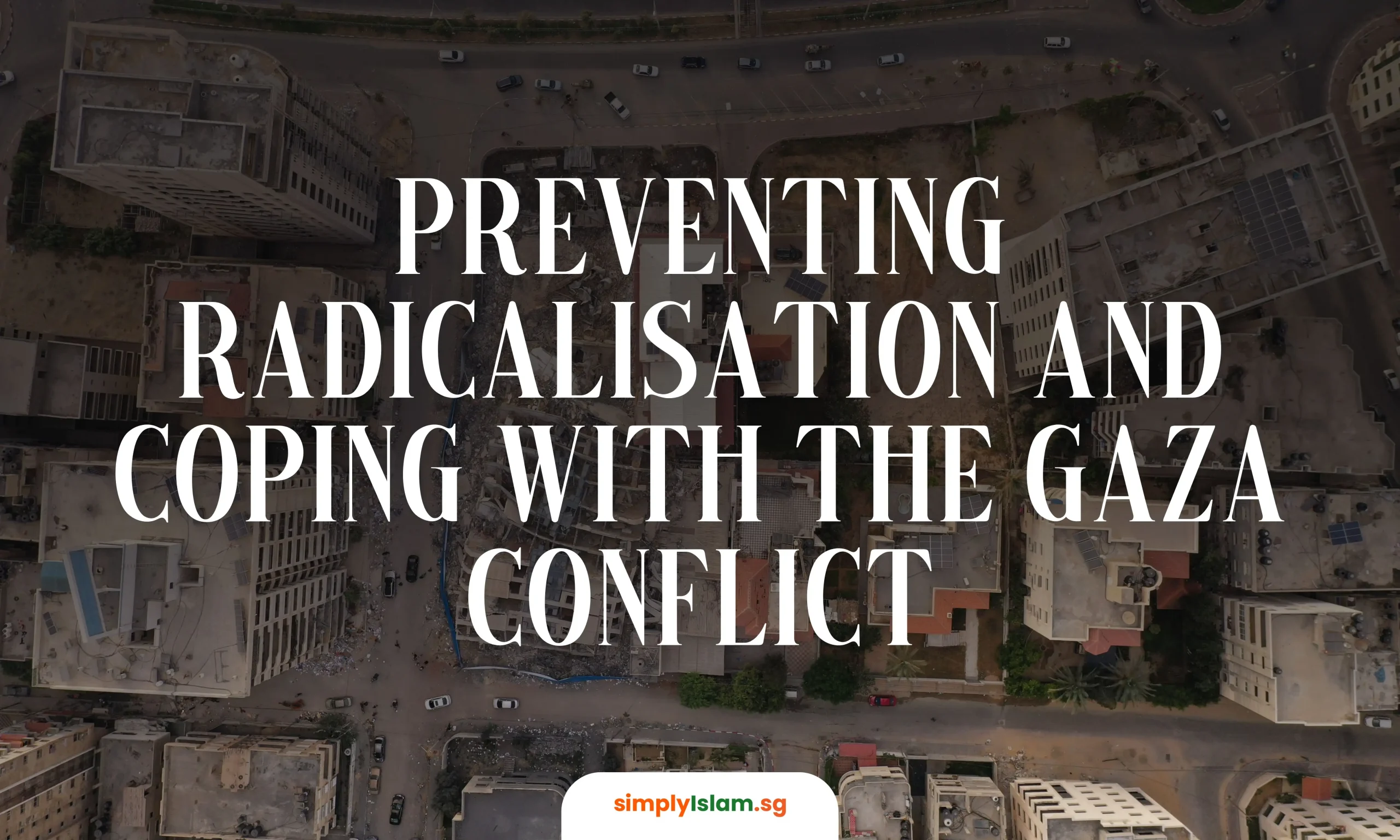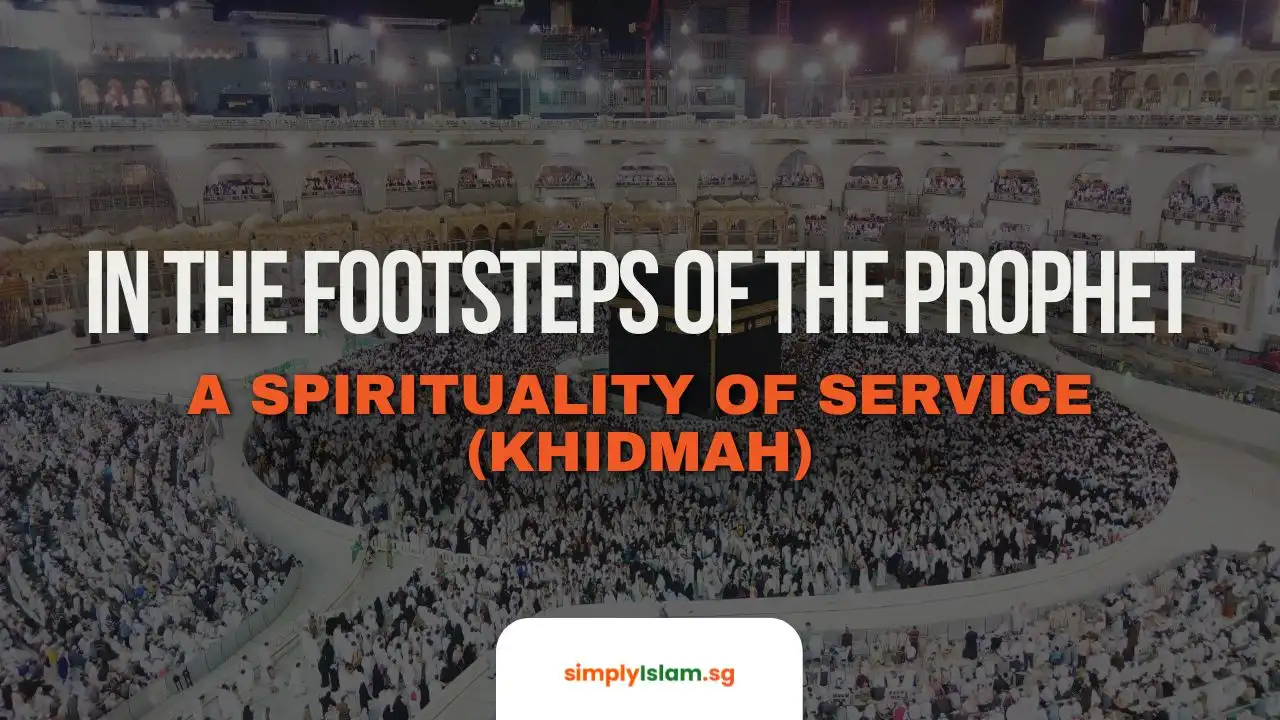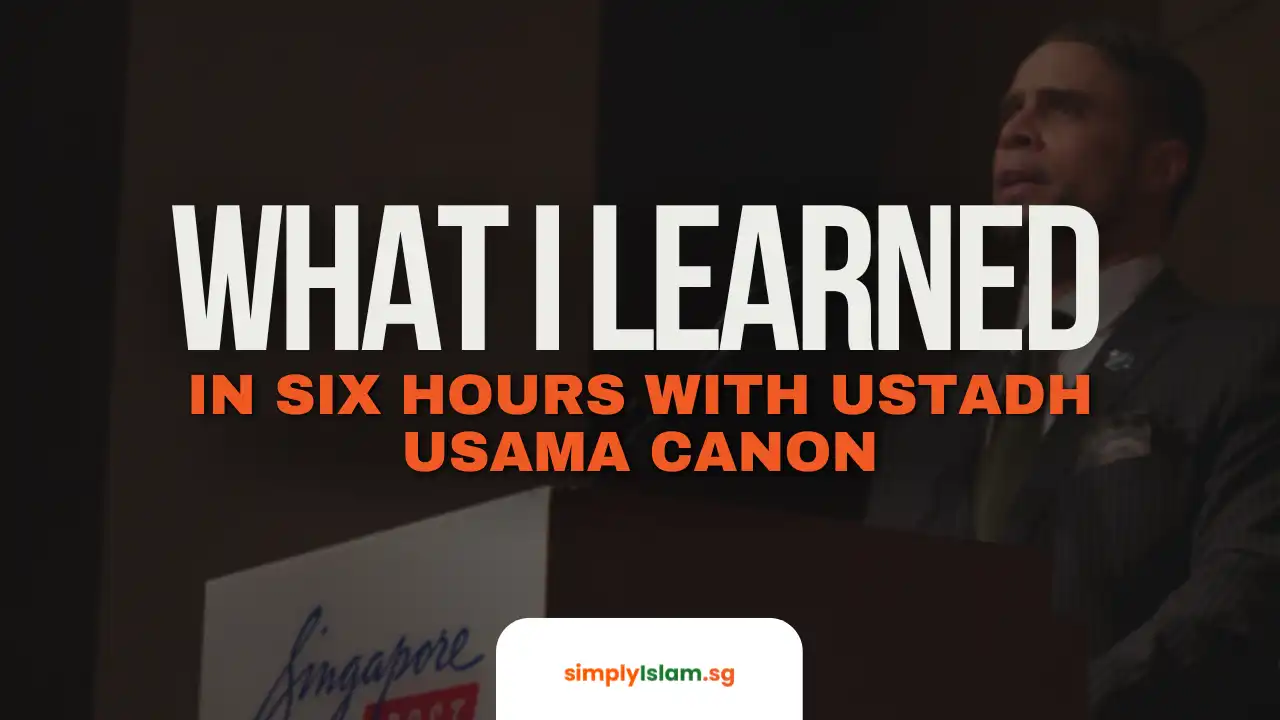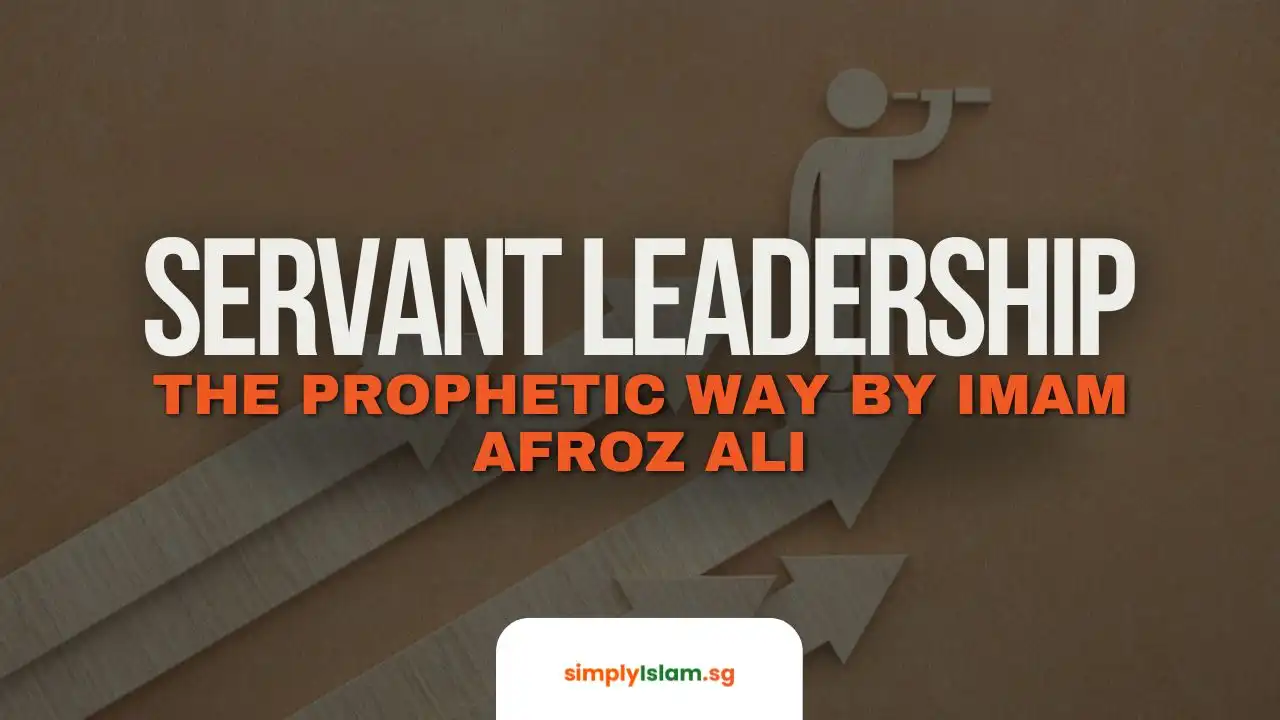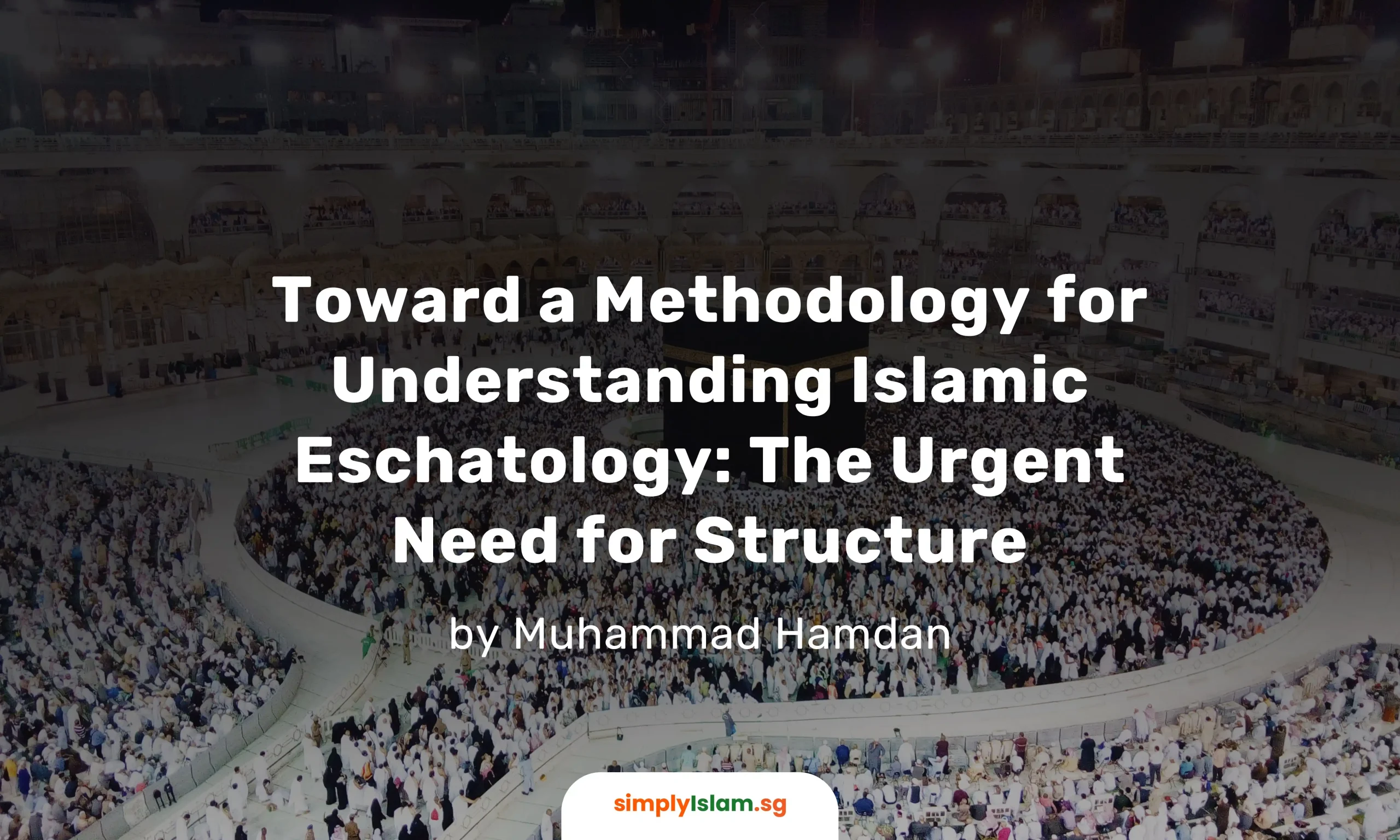
Achieving Balance by Knowing Ourselves – Shaykh Faid Mohammed Said
He ﷺ Chose Mercy: Prophetic Responses to Hate, Hurt, and Hostility
Reflections for Singaporean Muslims
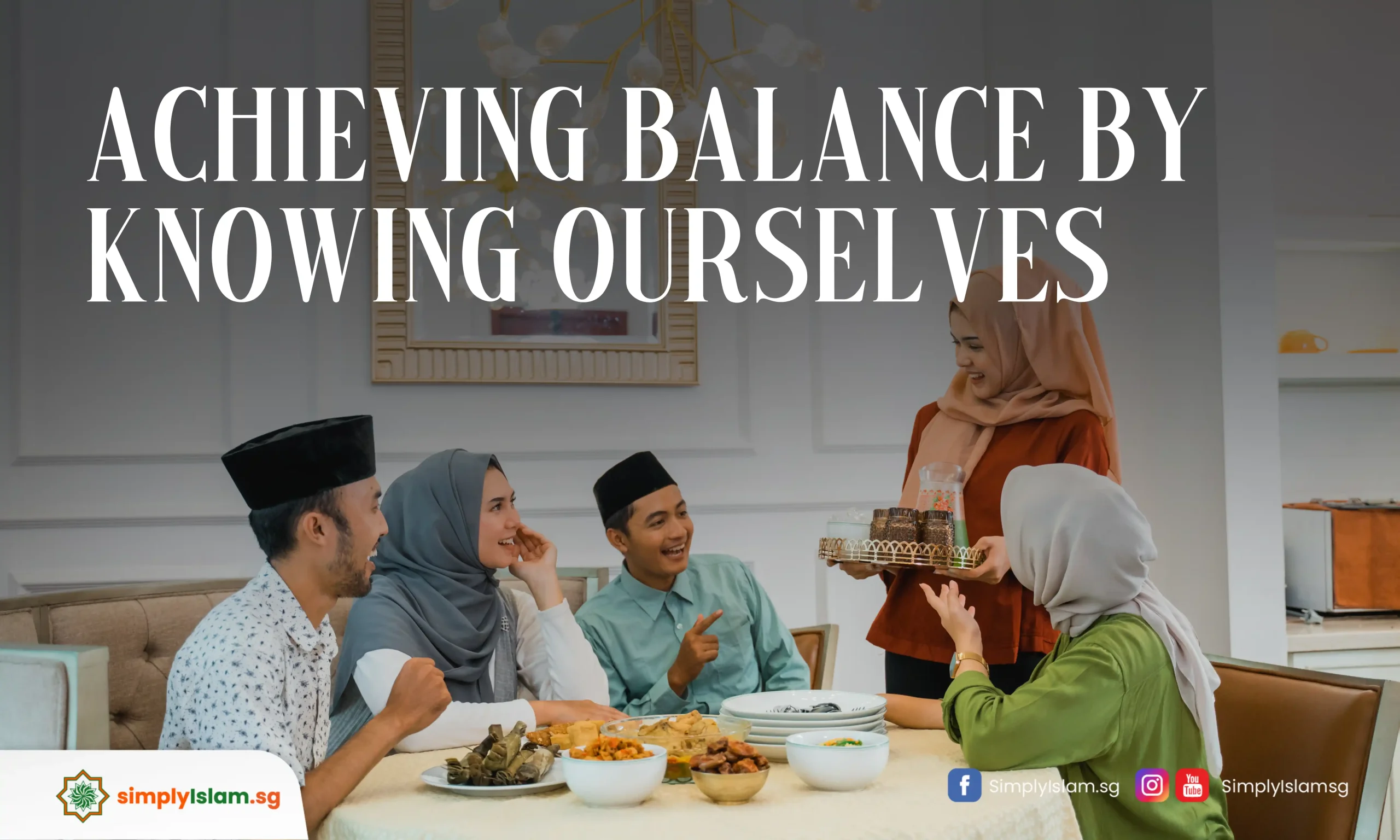
“Allah guides to His Light whom He wills.”
(Surah An-Nur)
Bismillahirrahmanirrahim.
Knowing yourself is one of the greatest blessings that Allah Almighty can grant us. He tells us about ourselves and what He has done for us in Surah An-Nisa (28)
“And Allah wants to make things easy; and mankind was created weak.”
Surely it is Allah who knows us best of all, and in this ayah, Allah Almighty tells us that He wants to make His commands and Qadr achievable for us because He knows our ability – we struggle when torn between contrasting extremes, but thrive when we are able to balance them. In a Hadith (Bukhari, Muslim) narrated by Anas ibn Malik (May Allah be pleased with him), three men from the Companions came to the house of the
Prophet (ﷺ) to ask how He conducted Himself at home. Seeing this, they thought that the amount the Prophet (ﷺ) worshipped His Lord Almighty was not very much, so each of them made a choice: one said he would engage in night prayers every night, another said he would fast every day and the last companion said he would avoid all distractions by forgoing marriage.
In contrast, the Prophet (ﷺ) said: “For me, sometimes I sleep and sometimes I pray night prayers; sometimes I eat and sometimes I fast, and I am married. And whosoever does not want to worship in My way, he is not following My religion”. In this Hadith, we see that each of the companions wanted to achieve or progress by going to an extreme in their worship, when Allah Almighty never wanted us to make things difficult for ourselves.
All the Prophets ate, interacted in the marketplace and had families; like them, the believer needs to achieve balance. We should do the compulsory forms for worship, and whatever we can of the additional forms, but should not push ourselves past the point of difficulty. The Prophet (ﷺ) would accept the invitations of His companions – He (ﷺ) would laugh with them and they would enjoy His company, as He (ﷺ) was very humble. But if we cut ourselves off from everyone and restrict ourselves, that is making things difficult for ourselves. We have a duty to Allah Almighty, but also to our families, neighbours, children, parents, and hence we must maintain and enjoy this balance.We must always remember that no matter what we do, we cannot encompass everything that is good or beneficial. The Prophet (ﷺ) said, “Indeed this Religion is very easy and anyone who tries to be extreme in their religion in striving for excellence, will be overpowered; so you should try to be near to perfection and receive the good tidings that you will be rewarded; and gain strength by worshipping in the mornings, the afternoons, and during the last hours of the nights.” (Al-Bukhari: 39).
In relation to this Hadith, Ibn Rajab Al Hanbali said “If someone is extreme in their worship
and practices, they will end up stopping it all together”. This does not mean we should stop trying to perfect our worship or doing righteous acts, but we are warned against going to extremes in our voluntary worship, as this eventually leads to neglecting that which has been made compulsory. Worship is not something we achieve in a day; it is a lifelong effort, as Allah Almighty said to the Prophet (ﷺ): “And worship your Lord until the day of certainty (i.e. death)”.Allah Almighty knows our nature, and our provision is written and guaranteed; when we
understand this, we understand that Allah Almighty wants us to live balanced lives in the interests of our own wellbeing. For this reason, Allah Almighty made the doors of halal provision very wide, and the doors of haram provision very narrow.
“Say, ‘Who has forbidden the adornment of Allah which He has produced for His servants and the good [lawful] things of provision?” Say, “They are for those who believe during the worldly life [but] exclusively for them on the Day of Resurrection.” Thus do We detail the verses for a people who know. Say, “My Lord has only forbidden immoralities – what is apparent of them and what is concealed – and sin, and oppression without right, and that you associate with Allah that for which He has not sent down authority, and that you say about Allah that which you do not know.” (Surah Al-Araf 32-33)
Allah Almighty wants comfort for us, as everything has been created for us, but He also does not want us to waste everything we have; hence we should not be too greedy nor overspend. We should always strike a balance, as Allah Almighty said:
“And do not make your hand [as] chained to your neck or extend it completely and [thereby] become blamed and insolvent.” (Surah Al-Isra, 29)
Unless we learn to strike a balance between the requirements of our faith, needs of this world and our public and private responsibilities, we cannot achieve comfort and ease. The greatest achievement of faith is to have this balance in our belief, character, dealings with one another, and our morality; a balance between going into the depths of our religion and spirituality and from spending all of our energy in trying to achieve worldly desires. This balance cannot be more clearly defined than the example of the Prophet (ﷺ), who in the midst of being occupied by prayers, duties and spreading the message of Islam, still found time to race with His wife Aisha, play with His grandchildren Imam Hasan and Imam Husain (Peace be upon them), visit Sayedah Fatima Az Zahra (Peace be upon her), and spread His love to the community.
This is balance. Allah Almighty knows that we, as humans, are not made for either intense, detached spirituality or exclusively worldly lives. People can be hard on themselves and on others, but through both ease and hardship we should escape to Allah Almighty as He is much more Merciful to us than we are to ourselves. Allah Almighty said to all of us in Surah Ad-
Dhariyat (50): “Escape towards Allah!” He opened the door and invited you to run to Him whenever you are faced with difficulty, even if you have disobeyed Him! And when you run or escape from somewhere, you do not carry anything with you. So escape from your fear to His safety!
May Allah Almighty purify our hearts and intentions, make us worthy of following Rasulullah (ﷺ) and make us grateful for being part of His community.
About Shaykh Faid Mohammed Said:
Shaykh Faid Mohammed Said from Eritrea, and is an Islamic scholar, teacher and author. He has spoken widely on international Islamic community cohesion and participated in many global platforms. 2018 – 2021 listed in the world’s 500 most influential Muslims by Georgetown University’s the Prince Al-Waleed Bin Talaal Center for Muslim-Christian Understanding and Royal Islamic Strategic Studies Centre of Jordan.Shaykh Faid was the Director of the Larayb
Institute of Education (LiFE), Resident Scholar at the Harrow Central Mosque and Principal of Al-Madinah College. He is currently The Imam of The London central Mosque & The Islamic Cultural Centre, Also he is the Secretary General for The Commission of Fatwa and Islamic Affairs.



